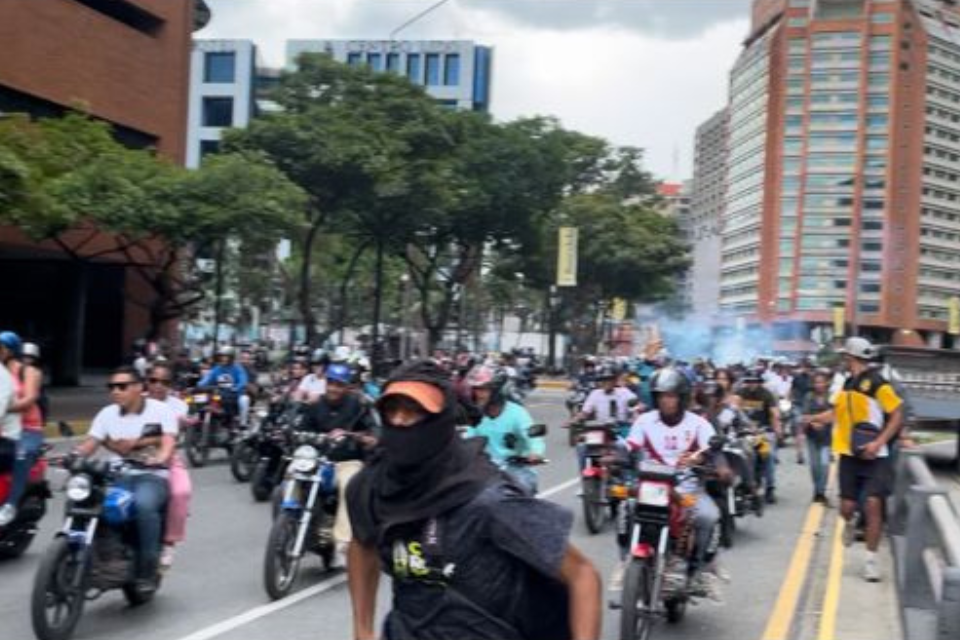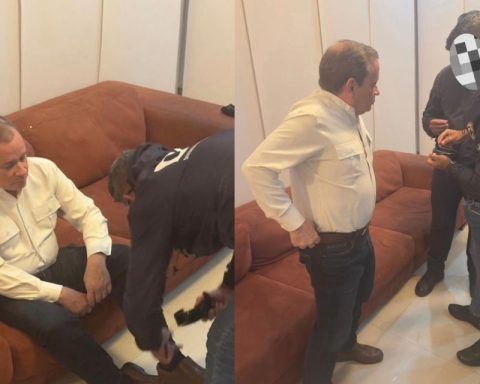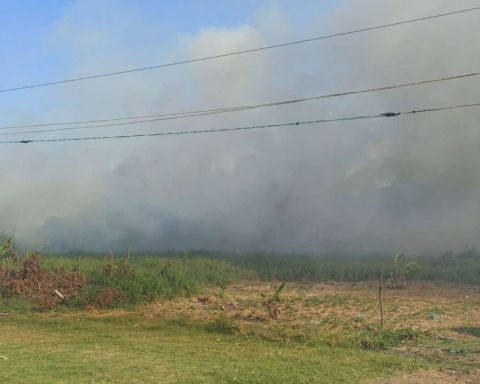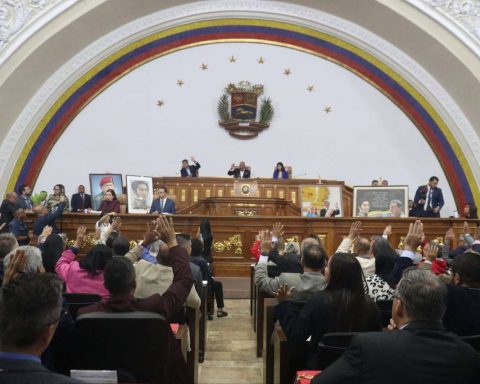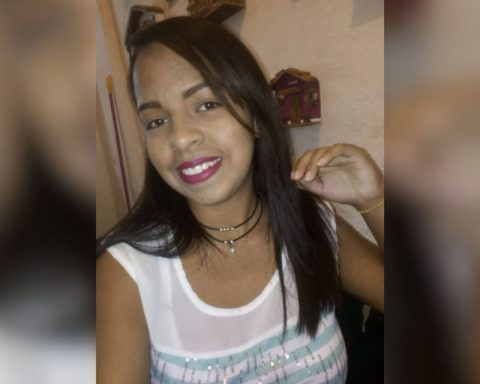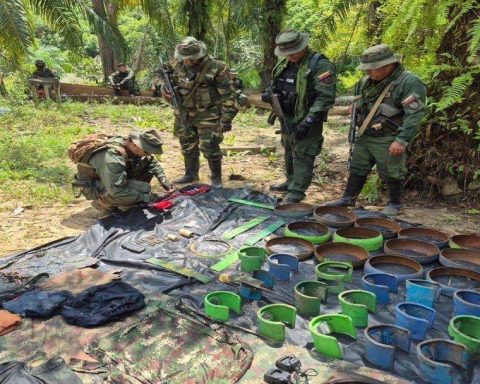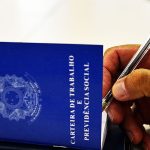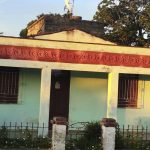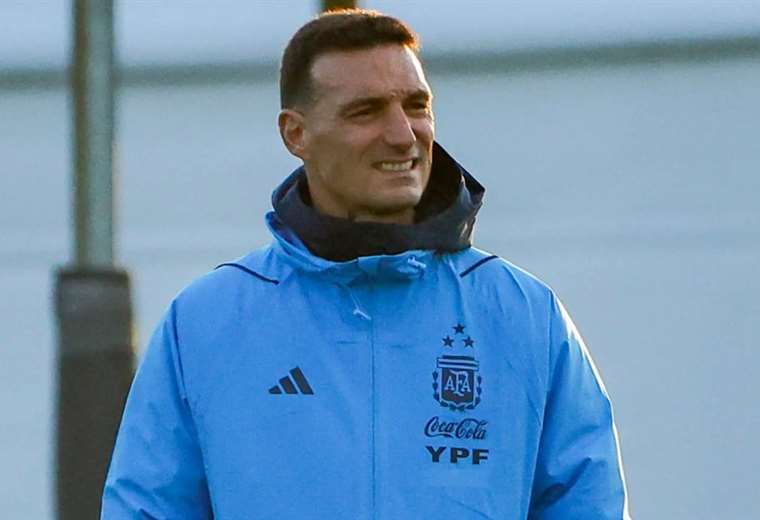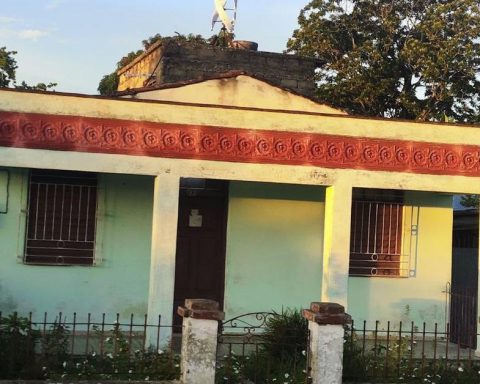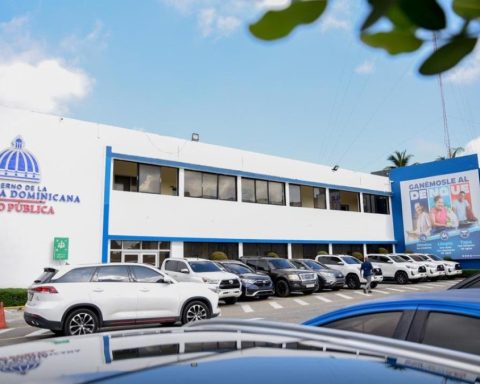Human rights organizations, in a report called “the black book of the dictatorship,” detail how repression has been taking shape in the country since the beginning of the year, with the arrest and criminalization of political activists, human rights defenders and civil society in general.
A group of human rights organizations denounced on Tuesday, September 3, the application of “state terrorism”, the establishment of a “regime of exception” and the continuation of the international crime of political persecution, due to the pre- and post-electoral events in the country caused by the actions of the government of Nicolás Maduro.
In a report disclosed under the name «Post-electoral and Human Rights Crisis 2024 in Venezuela: The Black Book of the Dictatorship»The group of organizations details how repression has been taking shape in the country since the beginning of the year, with the arrest and criminalization of political activists, human rights defenders and civil society in general.
Also addressed are the restrictions on civic space during the campaign, the violations recorded on election day itself and the subsequent repression after the announcement of the results issued by the National Electoral Council (CNE), declaring Maduro the winner, which has left more than 22 dead and at least 1,500 people detained according to independent reviews.
Here are 10 key points about the new “black book of the dictatorship”:
1. De facto exception regime
The organizations found that “21.7% of the articles of the Constitution” have been repealed, de facto, by the authorities. These articles are linked to fundamental rights, so they consider that “a regime of exception has been established in the country by way of facts.”
2. Criminalization of the opposition
The government of Nicolás Maduro has used different methods to criminalize and try to subdue the opposition, under the allegation of “conspiracies” and “fascist or terrorist actions.” To do so, it has arrested and prosecuted activists and political leaders from different parties gathered under the Unitary Platform such as Freddy Superlano, Emil Brant or Williams Dávila.
The political persecution extended to Comando Con Venezuela, the opposition campaign command that first served María Corina Machado and then Edmundo González Urrutia, the candidate they allowed to register with the CNE after the disqualification of the opposition leader.
*Read also: NGOs request «diplomatic pressure» on Venezuelan authorities for «state terrorism»
The disqualifications by the Comptroller’s Office, without explanation or possibility of any defense, have also been applied to politicians such as Tomás Guanipa and Carlos Ocariz, in addition to 12 mayors of the states of Miranda, Nueva Esparta and Trujillo such as José Fernández (Los Salias), José Leocadio Carrillo (Urdaneta) or Iraima Vásquez (Tubores).
At least 289 people have been arbitrarily detained for political reasons since January. 28.9% were detained for providing services or goods for Edmundo González’s campaign. The Bolivarian National Police, the Sebin and the National Guard were the main security forces involved in these events.
Before July 28, they also recorded 104 acts of harassment against political leaders and activists, most of them against members of Vente Venezuela, Comando Con Vzla itself, Primero Justicia and La Causa R.
3. Excessive repression against protest
On January 18, Nicolás Maduro himself ordered the activation of the so-called “Bolivarian fury,” which he described as a “civic, military, and police plan to confront any terrorist attempt.” According to available data, 20 headquarters of political, academic, or social organizations were vandalized, five arbitrary arrests were made with short-term forced disappearances, and there was one attempted kidnapping.
According to the report, 2,383 protests were recorded in the country during the first half of the year, 56% of them related to demands for economic, social and cultural rights such as housing, work and access to fuel.
At least 1,311 protests took place in July alone, 913 of which occurred on the 29th and 30th. 90% of them were for the demand for civil and political rights. In the post-election protests, between 24 and 26 people were killed and at least 1,500 were detained as a “quota.” The so-called “tun tun operation” was also applied to generate fear in the population, in addition to making “exemplary punishments” visible.
The main spokesman for repression was identified as Nicolás Maduro, who is linked to “the fabrication of false positives to delegitimize complaints about violations of the right to life during protests, in a coordinated manner at different levels of public power, together with his allies.”
4. Siege against NGOs
Since January, the 2020 National Assembly – with a pro-government majority – threatened to approve the “Law for the Supervision, Regulation, Action and Financing of Non-Governmental Organizations”, which was finally approved on August 15 with new modifications.
592 attacks or security incidents against human rights defenders and organisations have been documented during the first half of the year. Most involved stigmatisation (388), intimidation and harassment (124), as well as threats (68).
Several defenders have also been arbitrarily detained, the first of whom was the president of the NGO Control Ciudadano, Rocío San Miguel. During the post-election protests, Kennedy Tejada, Edward Ocariz, Henry Gómez, Yendri Velásquez and Edni López were arrested.
5. Limitations on voters and their rights
Due to the obstacles and restrictions, it is estimated that more than 4.5 million Venezuelans abroad were unable to register or change their address in the Electoral Registry. Only 604,964 new voters were registered and 847,999 updated their data or changed their address.
The CNE changed the name (completely or partially) of 170 voting centers, where at least 158 thousand people vote; 68 were eliminated, which implied the relocation of more than six thousand voters; and eight new ones were created.
*Read also: UN experts demand that the government end human rights violations after the elections
On election day, there were some delays due to machine failures. At 28.2% of the centres, there were polling stations nearby. The presence of opposition electoral witnesses, who were persecuted after the elections, was limited at 55.8% of the polling stations. Copies of the minutes were also denied at 30.5% of the monitored locations.
In addition, 86 actions by armed groups to intimidate citizens were recorded. These actions resulted in one death and several gunshot wounds.
6. Freedom of expression violated
By July 28, according to the National Union of Press Workers, four journalists had been arrested. Since the election, another 10 journalists (some with political ties, such as Biagio Pilieri, José Camero and Roland Carreño) have been arrested.
Restrictions on social media have also been recorded, such as the suspension of X in the country on Maduro’s orders, and the blocking of 58 websites related to media outlets or ways to circumvent censorship (VPN). 98 violations of freedom of expression were also documented, the main events classified as intimidation and verbal and judicial harassment, and the closure of 17 radio stations.
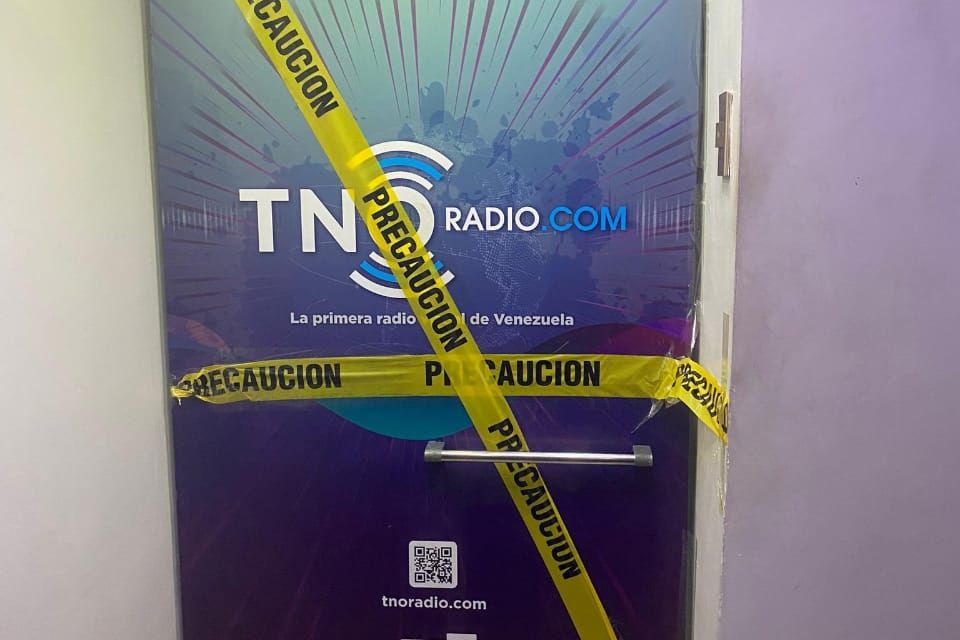
The government also created a service reporting app, VenApp, for politically motivated persecution. A new window was created in the app to “report criminals who have attacked the people,” said Maduro, who directly promoted reporting of people identified as opponents.
7. Intimidation by the ELN
According to the report, two extrajudicial executions committed for political reasons have been recorded this year. One of them was the murder of José Sánchez Acevedo, 23, who was allegedly kidnapped in the municipality of Lobatera (Táchira) by alleged members of the National Liberation Army (ELN) and taken to Colombian territory. The young man was allegedly responsible for five polling stations.
“At different times, intimidation by alleged ELN members against people involved in Edmundo González Urrutia’s campaign was reported,” the report says. This occurred in Capacho Nuevo and in the municipality of Guásimos.
The homes of political leaders such as the mayor of Rubio, Jackson Carrillo, were targeted. In total, eight activists were threatened by alleged ELN members. According to a study by Insight Crime, the ELN guerrilla group is present in eight of the country’s 24 states.
8. Closure of businesses
According to the report, at least 24 commercial establishments were closed by Seniat in retaliation for having provided some service to Edmundo González’s campaign. The establishments were fined and closed for a period of between five and 30 days.
There were also 17 cases where property was seized from those who provided services to the opposition campaign. “The objective of the seizure, focused on the logistical aspect of the rallies, was to increase the levels of inefficiency of the electoral campaign, trying to generate greater isolation.” 49 people were arrested in the midst of these seizures.
Post Views: 39
